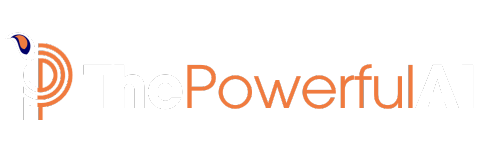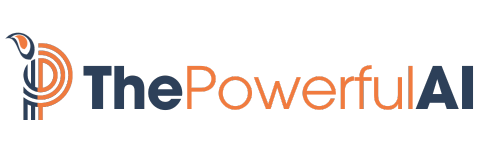The best artificial intelligence software in 2024 is OpenAI, Writesonic, Pictory AI, Synthesia, Wordtune, and Grammarly. Artificial intelligence (AI) has become an essential tool in various industries, revolutionizing the way businesses operate and improving productivity.
In recent years, the development of AI software has seen significant advancements, with various companies offering cutting-edge solutions. In 2024, the most advanced AI software options include OpenAI, which provides powerful language models and chatbot capabilities. Writesonic is another top contender, offering AI-powered content generation and marketing support.
Pictory AI specializes in computer vision and image recognition, while Synthesia offers AI-driven video generation and editing tools. Wordtune is a popular AI writing assistant, and Grammarly is well-known for its AI-based grammar and spell-checking capabilities. These platforms provide businesses with the tools they need to enhance productivity, streamline operations, and stay ahead in the competitive landscape.

Credit: www.toptut.com
Introduction To Artificial Intelligence Software
Artificial Intelligence (AI) has become an indispensable part of our lives, revolutionizing various industries and transforming the way we work and interact with technology. AI software, in particular, plays a crucial role in harnessing the power of AI algorithms and machine learning models to perform complex tasks that were once only possible for humans.
Definition Of Artificial Intelligence (ai) Software
AI software refers to a set of computer programs and applications that incorporate AI technologies to simulate human-like intelligence and perform tasks that would require human cognition. This software leverages machine learning algorithms, natural language processing, computer vision, and other AI techniques to analyze vast amounts of data, make decisions, solve problems, and optimize processes.
Importance Of Ai Software In 2024
In 2024, AI software is set to play an even more significant role in shaping businesses and driving innovation. With advancements in deep learning and neural networks, AI software can now handle complex tasks, process unstructured data, and generate actionable insights at an unprecedented scale and speed. This has resulted in increased efficiency, improved customer experiences, and enhanced decision-making capabilities across industries.
The adoption of AI software in 2024 is expected to bring forth numerous benefits for organizations. It can automate repetitive tasks, enable predictive analytics, personalize user experiences, enhance cybersecurity defenses, optimize supply chain management, and streamline business operations. Moreover, AI software empowers businesses to extract valuable insights from big data, detect patterns, and gain a competitive edge in the market.
Overview Of Ai Software Market
The AI software market is witnessing rapid growth and is projected to expand even further in the coming years. According to market research, the global AI software market is estimated to reach USD 190.61 billion by 2025, growing at a CAGR of 35.9% from 2020 to 2025. This immense growth is attributed to the increasing demand for AI-powered solutions across various sectors, including healthcare, finance, manufacturing, retail, and transportation.
In 2024, AI software solutions are expected to become more sophisticated, offering advanced functionalities and tailored solutions to meet specific industry requirements. The market will witness the emergence of new AI software vendors, as well as the continued innovation and expansion of established players within the industry.
The key factors contributing to the growth of the AI software market include the rising adoption of cloud-based AI solutions, the proliferation of IoT devices generating massive data, the availability of cost-effective computing power, and the increasing integration of AI into existing applications and systems.
In summary, the introduction of AI software has paved the way for groundbreaking technological advancements. As businesses continue to leverage AI capabilities, the importance and demand for AI software will only continue to grow in 2024 and beyond.
Top Ai Software Tools For Business
Artificial Intelligence (AI) has become an integral part of modern businesses, revolutionizing the way they operate and make decisions. As AI evolves, so do the software tools that harness its power. In this blog post, we will explore some of the top AI software tools for businesses in 2024. These tools encompass a wide range of capabilities, from AI-powered chatbots to advanced data analysis and insights. Let’s dive in and discover how these tools can transform your business.
Ai-powered Chatbots For Business
AI-powered chatbots have revolutionized the way businesses interact with their customers. These intelligent virtual assistants can handle customer queries, provide personalized recommendations, and even process orders seamlessly. With the advancements in natural language processing and machine learning algorithms, chatbots have become more sophisticated and efficient, providing a seamless customer experience. Some popular AI-powered chatbot software tools include:
- Slack: Slack’s AI-powered chatbots can help businesses streamline communication and collaboration within teams.
- Stripe: Stripe enables businesses to incorporate AI-powered chatbots into their payment processes, improving customer experience and reducing manual tasks.
- Notion: Notion’s AI chatbots assist businesses in managing projects, organizing information, and automating repetitive tasks.
- ClickFunnels: ClickFunnels’ chatbots optimize sales funnels by engaging with potential customers, delivering personalized recommendations, and driving conversions.
Gpt-3 And Next-generation Ai Apps
GPT-3 (Generative Pre-trained Transformer 3) has been a game-changer in the field of AI, capable of generating human-like text and powering next-generation AI applications. These AI apps leverage GPT-3’s natural language processing capabilities to perform various tasks. Some noteworthy next-generation AI app software tools include:
- Kleap.ai: Kleap.ai enables businesses to develop AI-powered apps that generate automated content, perform sentiment analysis, and provide personalized recommendations.
- Writesonic.ai: Writesonic.ai facilitates the creation of AI-powered apps for generating marketing copy, blog articles, product descriptions, and more.
- Playground.ai: Playground.ai offers a platform for businesses to build AI apps that enhance customer engagement, automate customer support, and optimize marketing campaigns.
- Fireflies.ai: Fireflies.ai allows businesses to develop AI apps that automate note-taking, transcription, and meeting scheduling, improving productivity and collaboration.
Ai Software For Data Analysis And Insights
Data analysis plays a crucial role in helping businesses make data-driven decisions. AI-powered software tools for data analysis and insights enable businesses to extract valuable information, uncover patterns, and gain actionable insights from vast amounts of data. Some prominent AI software tools for data analysis and insights include:
| Software | Features |
|---|---|
| Google AI | Offers various AI-powered tools for data analysis, such as Google Cloud AI, AutoML, and BigQuery, enabling businesses to process and analyze data efficiently. |
| TensorFlow | A popular open-source AI software library that provides tools for data analysis, machine learning, and deep learning, empowering businesses to build and deploy AI models. |
| IBM Watson | IBM Watson offers AI-powered analytics software that helps businesses uncover insights, predict outcomes, and optimize decision-making. |
| Cortana | Microsoft’s AI assistant, Cortana, offers data analysis capabilities, allowing businesses to perform tasks like data visualization, natural language queries, and predictive modeling. |
| Microsoft Azure | Microsoft Azure provides a robust suite of AI tools and services for data analysis, including Azure Machine Learning, Azure Databricks, and Azure Synapse Analytics. |
| Amazon Alexa | Amazon Alexa’s AI capabilities can analyze and uncover insights from various data sources, enabling businesses to make data-driven decisions and improve customer experiences. |
These AI software tools empower businesses with the ability to leverage AI and make informed decisions based on actionable insights from data analysis.
Popular Ai Software For Developers And Researchers
Artificial Intelligence (AI) has become an integral part of various industries, including software development and research. As the demand for AI solutions continues to rise, developers and researchers are constantly on the lookout for the best AI software to enhance their projects and achieve superior results. In this blog post, we will explore the popular AI software for developers and researchers in 2024, focusing on leading software platforms, frameworks and libraries, as well as cutting-edge AI tools and technologies.
Leading Software Platforms For Ai Development
When it comes to AI development, having the right software platform is crucial for efficient and effective project management. Here are some of the top software platforms for AI development:
- Google AI: Google AI offers a comprehensive suite of tools and resources for AI development, backed by Google’s expertise in machine learning and deep neural networks.
- TensorFlow: Developed by Google, TensorFlow is an open-source platform widely used for building and deploying AI models across various domains.
- IBM Watson: IBM Watson provides a powerful set of AI tools and services, enabling developers to create and deploy AI-powered applications with ease.
- Cortana: Microsoft’s Cortana is an AI platform that offers natural language processing, machine learning, and speech recognition capabilities, allowing developers to build intelligent applications and chatbots.
- Microsoft Azure: Azure provides a comprehensive set of AI services, including pre-built models and tools, to help developers build, deploy, and manage AI solutions at scale.
- Amazon Alexa: Amazon Alexa offers a wide range of AI capabilities, enabling developers to build voice-based applications and integrate AI into various devices.
Frameworks And Libraries For Ai Development
Frameworks and libraries play a vital role in AI development, providing developers with pre-built modules and tools for building AI applications efficiently. Here are some popular frameworks and libraries for AI development:
- Keras: Keras is a high-level neural networks API, written in Python, that provides a user-friendly interface for building and training deep learning models. It runs on top of popular AI frameworks like TensorFlow and Theano.
- Microsoft Cognitive Toolkit: Also known as CNTK, the Microsoft Cognitive Toolkit is a deep learning framework that offers excellent scalability and performance, making it suitable for both research and production use.
- PyTorch: PyTorch is a dynamic deep learning framework that allows developers to define and modify computational graphs on the fly, making it highly flexible and efficient for AI research and development.
- scikit-learn: scikit-learn is a versatile machine learning library in Python that provides a wide range of algorithms and tools for various AI tasks, including classification, regression, and clustering.
- Caffe: Caffe is a deep learning framework designed for speed and modularity, making it ideal for training large-scale neural networks with speed and efficiency.
- Theano: Theano is a Python library that allows developers to define, optimize, and evaluate mathematical expressions involving multi-dimensional arrays, making it a popular choice for deep learning research.
Cutting-edge Ai Tools And Technologies For Researchers
Researchers constantly seek innovative tools and technologies to push the boundaries of AI and make groundbreaking discoveries. Here are some cutting-edge AI tools and technologies that researchers are using:
| Tool/Technology | Description |
|---|---|
| OpenAI | OpenAI is an AI research organization that develops state-of-the-art AI models and technologies, such as ChatGPT and GPT-4, pushing the boundaries of AI capabilities. |
| Writesonic | Writesonic is an AI-powered writing assistant that helps researchers generate human-like content, automate writing tasks, and improve research productivity. |
| Pictory AI | Pictory AI provides advanced computer vision and image analysis tools, enabling researchers to extract valuable insights from images and videos. |
| Synthesia | Synthesia specializes in AI-powered video synthesis, allowing researchers to create lifelike videos from text, reducing the need for manual video production. |
| Wordtune | Wordtune is an AI writing tool that helps researchers improve their writing by suggesting alternative wordings and generating better-quality content. |
| Grammarly | Grammarly is a popular AI-powered writing assistant that helps researchers enhance their writing by providing real-time grammar and spelling suggestions. |
These cutting-edge AI tools and technologies empower researchers to unlock new possibilities and accelerate their AI research.
Frequently Asked Questions On Best Artificial Intelligence Software 2024
What Are The Ai Trends In 2024?
AI trends in 2024 include advancements in natural language processing, computer vision, edge computing, and ethical AI practices. Emphasis will be on personalized customer experiences, increased automation, and improved data privacy and security.
What Is The Next Ai In 2023?
The most advanced AI software in 2023 is expected to be a combination of several emerging technologies, including deep learning, natural language processing, and computer vision. These advancements will enable AI systems to have more human-like capabilities, such as understanding and interpreting complex data and making more accurate predictions.
What Is The Most Advanced Ai Software In The World?
The most advanced AI software in the world is OpenAI. It utilizes deep learning techniques to train machines with different types of data.
What Is The Most Advanced Ai Possible?
The most advanced AI software currently available is deep learning, a technique that involves training machines with various types of data. This technology has shown immense potential in advancing artificial intelligence.
Conclusion
In the rapidly evolving world of artificial intelligence, finding the best software can be challenging. However, with advancements in technology, there are several AI software options that stand out for their advanced capabilities. From machine learning to deep learning techniques, these software platforms offer flexibility, modularity, and quick experimentation for researchers and developers.
Some noteworthy options include C3 AI, viso. ai, and ClickUp, among others. With the constant development of AI technology, it’s important to stay updated and utilize the best software to unlock its full potential.





